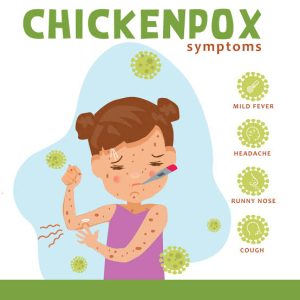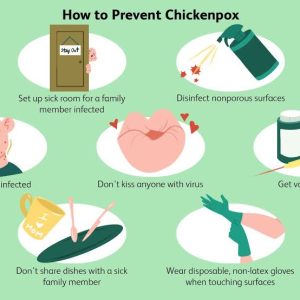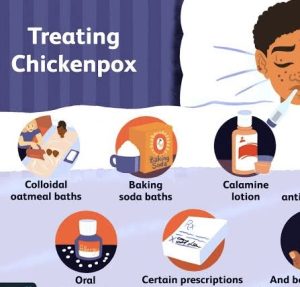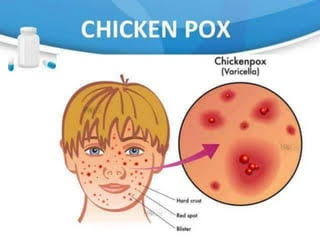In the heart of a bustling metropolis, an insidious threat loomed over the city: The Spotted Invader, a virulent strain of chicken pox that was more potent and aggressive than ever before. It started with a few isolated cases but soon spread like wildfire, causing panic among the populace. The afflicted were marked by severe, blistering rashes and high fevers that seemed impervious to conventional treatments. Amidst the chaos, Dr. Rachel Morgan, an epidemiologist with a reputation for tackling the most elusive diseases, was called upon. Driven by her unwavering commitment to save lives, she delved into the heart of the crisis, determined to find a cure.
Dr. Morgan’s epiphany came when she realized that the virus had mutated to thrive in the urban environment, feeding off pollution and stress. She devised a revolutionary treatment that combined antiviral drugs with a holistic approach to strengthen the immune system. Patients were prescribed a regimen that included a nutrient-rich diet, stress management techniques, and regular doses of a new antiviral serum derived from local plants. As the treatment took effect, the patients began to recover rapidly, their rashes receding and fevers breaking. The city watched in awe as Dr. Morgan’s innovative methods not only eradicated The Spotted Invader but also fostered a newfound sense of community resilience. Through her dedication and ingenuity, she turned a tale of despair into one of triumph, inspiring hope and unity in the face of adversity.
What is Chicken Pox?

Chickenpox is an illness caused by the varicella-zoster virus. It brings on an itchy rash with small, fluid-filled blisters. Chickenpox spreads very easily to people who haven’t had the disease or haven’t gotten the chickenpox vaccine. Chickenpox used to be a widespread problem, but today the vaccine protects children from it.
Symptoms

1. Red, itchy skin rash with fluid-filled blisters
2. Fever
3. Fatigue and general feeling of being unwell
4. Headache
5. Loss of appetite
6. Muscle aches
7. Mild abdominal pain
8. Itchy, dry scalp
9. Sore throat
10. Cough
Prevention

1. Vaccination: The chickenpox
(varicella) vaccine is the most effective way to prevent the disease. Two doses are typically recommended for children, adolescents, and adults who have never had chickenpox.
2. Isolation: Keep infected individuals isolated from others, especially those who are unvaccinated or have weakened immune systems, to prevent the spread of the virus.
3. Good Hygiene: Encourage frequent hand washing with soap and water, and avoid touching the face.
4. Avoid Sharing Personal Items: Do not share items like towels, clothing, or bedding with someone who has chickenpox.
5. Disinfect Surfaces: Regularly clean and disinfect surfaces that may be contaminated with the virus, especially in shared spaces.
6. Boost Immune System: Maintain a healthy lifestyle with a balanced diet, regular exercise, and adequate sleep to strengthen the immune system.
7. Public Health Measures: Follow public health guidelines and recommendations during outbreaks, such as avoiding crowded places and maintaining good ventilation in living spaces.
8. Educate and Inform: Raise awareness about the importance of vaccination and early detection of symptoms to prevent the spread of chickenpox.
9. Avoid Contact with Infected Individuals: Keep unvaccinated children and adults away from individuals known to have chickenpox.
10. Use Antiviral Medications In some cases, antiviral medications prescribed by a doctor can help prevent the onset of chickenpox if taken soon after exposure to the virus.
Complications
1. Bacterial Infections: Scratching the blisters can lead to bacterial infections of the skin, such as impetigo or cellulitis.
2. Pneumonia: Inflammation of the lungs (pneumonia) can occur, particularly in adults and individuals with weakened immune systems.
3. Encephalitis: Inflammation of the brain (encephalitis) is a rare but serious complication that can occur as a result of chickenpox.
4. Reye’s Syndrome: Although rare, Reye’s syndrome is a severe condition that can affect the liver and brain, typically occurring in children who have taken aspirin during a viral illness like chickenpox.
5. Dehydration: Severe itching and fever can lead to dehydration, especially in young children.
6. Joint Inflammation: Chickenpox can sometimes cause inflammation of the joints (arthritis), which is more common in adults.
7. Toxic Shock Syndrome: This is a rare but potentially life-threatening complication characterized by sudden high fever, rash, low blood pressure, and organ failure.
8. Complications in Pregnancy: Pregnant women who contract chickenpox can potentially pass the virus to their unborn child, leading to congenital varicella syndrome, which may cause birth defects.
Treatment

Chickenpox, caused by the varicella-zoster virus, typically resolves on its own within about 1-2 weeks without specific treatment in healthy individuals. However, to alleviate symptoms and prevent complications, here are some common treatments:
1. Antiviral Medications:In certain cases, especially for those at high risk of complications (such as adults, pregnant women, or individuals with weakened immune systems), antiviral drugs like acyclovir or valacyclovir may be prescribed to reduce the severity and duration of symptoms.
2. Over-the-counter Medications: Pain relievers such as acetaminophen (paracetamol) or ibuprofen can help reduce fever and discomfort. Avoid giving aspirin to children due to the risk of Reye’s syndrome.
3. Antihistamines:These can help relieve itching. Diphenhydramine (Benadryl) is commonly used for this purpose.
4. Calamine Lotion:Applied topically, calamine lotion can soothe itching and help dry out the blisters.
5. Oatmeal Baths:Taking colloidal oatmeal baths can provide relief from itching.
6. Hydration:Encourage plenty of fluids to prevent dehydration, especially if fever is present.
7. Rest:Getting adequate rest is important to support the immune system in fighting the virus.

